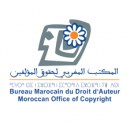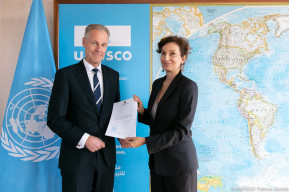Article
JazzWomenAfrica

On the occasion of this 11th edition of International Jazz Day, UNESCO is partnering with Anya Music (Morocco) to produce the second edition of the JazzWomenAfrica concert, with the financial support of the Canadian Commission for UNESCO, the Moroccan Office of Copyright (BMDA) and the Hiba Foundation. In partnership with the European Broadcasting Union (EBU), the concert will be distributed by its members and will be promoted through its sister broadcasting unions in Africa and other regions of the world.
Excerpts of JazzWomenAfrica will be broadcast on 30 April 2022 during the All-Star Global Concert produced by the Herbie Hancock Institute for Jazz.
The Concert (30 April, 9pm CET)
This unique concert is the result of a residency organized by Anya Music that brought together Jazz Women from across Africa including: Abigail Narkie Teye (percussionist, Ghana), Laura Prince (performer, Togo), Maah Keita (bassist, Senegal), Mariaa Sigaa (composer and performer, Senegal), Mounaissa (percussionist, Mali), Nelida Karr (guitarist, Equatorial Guinea), and Senny Camara (composer and kora player, Senegal).
The Discussion (29 April, 5pm CET)
Women artists and music producers will have a discussion on the solutions to the most important challenges facing Jazz Women in Africa, that is to: (1) gain access to global platforms that promote their artistic work; and (2) provide younger generations with positive role models that can help breakdown stereotypes inherent in the industry.























